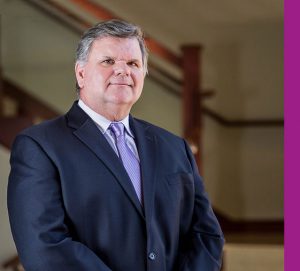 Q: Our condominium has a “hoarder” whose unit is filled with papers, newspapers, cardboard, plastic bags, and the like. I am worried about fire hazards and vermin infestation. Neither our board nor the manager are willing to do anything about this. Does Florida law provide me with any way to cure this situation? (H.R., via e-mail)
Q: Our condominium has a “hoarder” whose unit is filled with papers, newspapers, cardboard, plastic bags, and the like. I am worried about fire hazards and vermin infestation. Neither our board nor the manager are willing to do anything about this. Does Florida law provide me with any way to cure this situation? (H.R., via e-mail)
A: One line of inquiry is whether this person is over the age of 60 and/or has a disability; whether his unit is unsafe or unfit for human occupancy; whether he is also neglecting his health and hygiene, pets, and/or dependent children; and whether his failure to maintain the interior of the unit violates the condominium documents. Depending on the answers to these questions, there are several options you or your condominium association have to address this issue.
You or the condominium association may be able to report the unit owner’s self-neglect to the Florida Department of Children and Families (DCF). Florida law generally requires the reporting of known or suspected self-neglect or neglect of vulnerable adults, which include those over the age of 60 and those with disabilities, or children. DCF’s Florida Abuse Hotline receives reports 24 hours a day at 1-800-96-ABUSE or online at https://reportabuse.dcf.state.fl.us.
With the name and address of the unit owner, you or the condominium association can also request that a well-being check be performed by local law enforcement by explaining that there are concerns about the unit owner’s welfare and the habitability of his unit. Local law enforcement staff will then go out to the unit, knock on the door and, if no one answers, inspect what is visible from the outside. Depending on what is observed, local law enforcement may pursue a warrant for entry and to evaluate the unit owner. Further, to the extent the unit owner is over 60 years old or has a disability, or if dependent children reside in the unit, local law enforcement’s Special Victims Unit and/or DCF may also be consulted.
If the unit owner is failing to maintain the unit in a structurally safe and sanitary condition, local code enforcement staff may also be able to intervene. For example, Section 6-211 of the Lee County Land Development Code, incorporates the 1985 Standard Unsafe Building Abatement Code (“SUBAC”) by reference. Section 101.6 of SUBAC outlines maintenance obligations that if unfulfilled make a dwelling unsafe and unfit for human occupancy. To the extent the unit is not being maintained in good working order or in a sanitary condition, there may be a violation of SUBAC and local ordinance on which code enforcement staff can take action.
You or the condominium association could also seek the help and guidance of a local nonprofit organization that specializes in hoarding. While the local Department of Health generally does not have jurisdiction over hoarding or unhealthy conditions inside private residences the United Way of Lee, Hendry, Glades, and Okeechobee Counties, for example, and its social referral service can direct such concerns to the appropriate public or private agency. The United Way of Lee, Hendry, Glades, and Okeechobee Counties can be reached at 239-433-3900.
Condominium documents usually contain a nuisance provision prohibiting owners, lessees, and guests from using a unit in any way that unreasonably disturbs, is detrimental to, or is a nuisance to occupants of other units. This “catch all” language, at a minimum, may provide an opportunity for your condominium association to demand that the unit owner improve the conditions within the unit.
I recommend that you encourage your condominium association to speak with its legal services provider to assess how best to improve the condition of the unit and help the subject unit owner through one or more of these channels.
Joe Adams is an attorney with Becker & Poliakoff, P.A., Fort Myers. Send questions to Joe Adams by e-mail to jadams@beckerlawyers.com. Past editions may be viewed at floridacondohoalawblog.com.